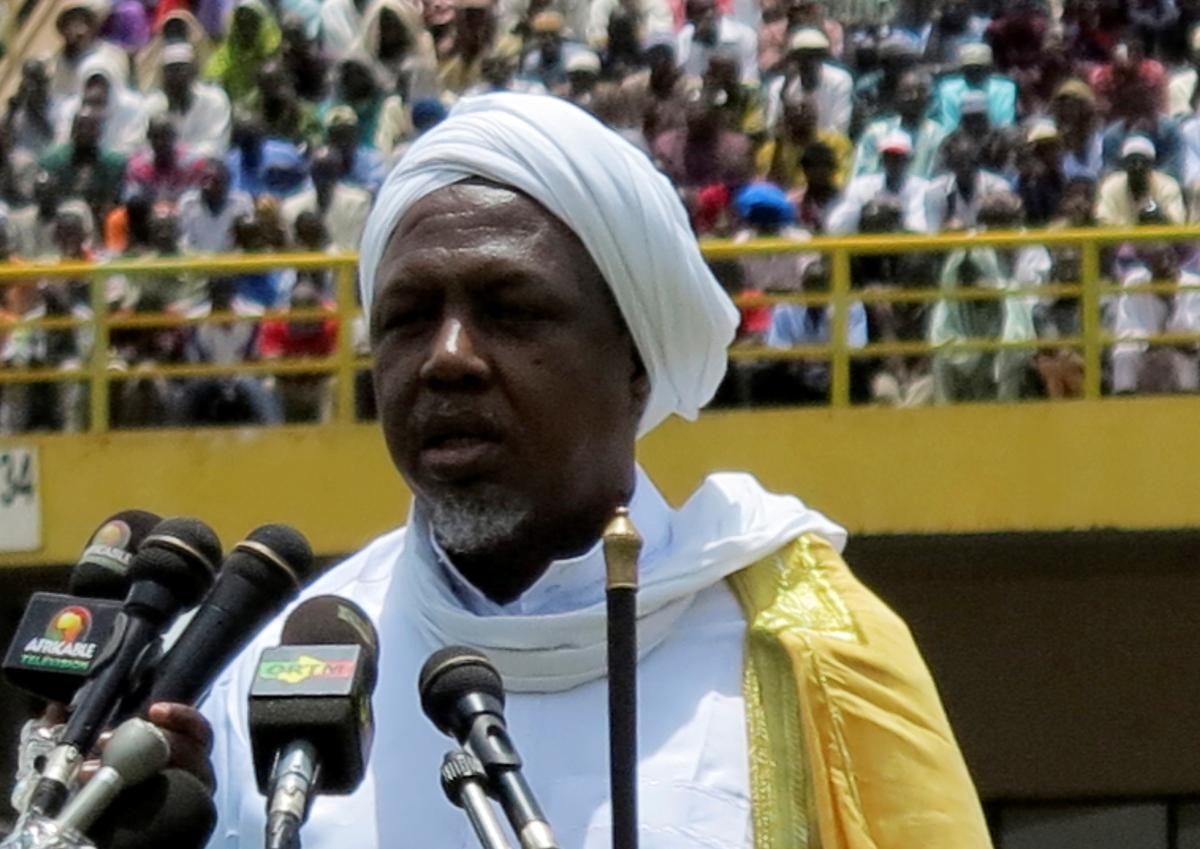Influential cleric Dicko emerges as driver of Mali protest movement

DAKAR (Reuters) – When five West African presidents arrive in Mali on Thursday to try to defuse a political crisis that has alarmed governments in the region and beyond, the man whose assent they need the most will be one who has never held elected office.
FILE PHOTO: Mahmoud Dicko, then-head of Mali’s High Islamic Council, speaks during a rally at the March 26 stadium in Bamako, Mali, August 12, 2012. REUTERS/Adama Diarra/File Photo
Mahmoud Dicko, a Saudi-trained preacher known for his Koranic erudition and social conservatism, is seen by admirers and detractors alike as the galvanizing force behind a protest movement now threatening the political survival of President Ibrahim Boubacar Keita.
International powers are anxious for the crisis to end, fearful it could undermine multi-billion-dollar efforts spearheaded by former colonial power France to contain insurgents linked to al Qaeda and Islamic State in the region.
Public opposition to Keita hardened, however, after at least 14 protesters were killed in clashes with security forces earlier this month.
Infuriated by grievances ranging from disputed legislative election results to the army’s repeated losses to Islamist militants, tens of thousands of people have taken to the streets in recent weeks.
Stepping to the rostrum at the first rally in the capital Bamako on June 5, Dicko, 66, drew on his signature brand of religiously-infused nationalism.
“This great nation of Mali, builder of empires and kingdoms, is not a submissive people,” Dicko said, addressing the crowd of mostly young men in the local Bambara language mixed with French and Arabic. “It is a people standing proud!” he said, thrusting a fist into the air as they chanted his name.
AGENT OF COMPROMISE?
While protesters come from a diverse coalition of religious, political and civil society groups, Dicko is universally viewed as the driving force. Some of the president’s supporters think that could be a good thing.
Unlike others, Dicko has not explicitly called for Keita, whom he supported in the 2013 election, to resign.
“I am convinced that Mahmoud Dicko is now determined to end all this,” said Bajan Ag Hamatou, a lawmaker from Keita’s coalition. “If he stops, the others will have to stop.”
But Dicko – who is expected to meet with leaders of Nigeria, Ivory Coast, Senegal, Ghana and Niger on Thursday – has not publicly proposed a compromise, leaving his endgame unclear. He did not agree to an interview but previously dismissed speculation he intends to seek political office.
HARDLINER
Dicko’s influence unnerves some in Mali, which is 95% Muslim but has a secular constitution, and France where some commentators have likened him to Iran’s late Ayatollah Ruhollah Khomeini.
He studied in Mauritania and Saudi Arabia in the 1970s, where he embraced conservative Salafist ideas. As head of Mali’s influential High Islamic Council in 2009, he led successful protests against a family code that would have thrown out a requirement that women obey their husbands.
FILE PHOTO: Mahmoud Dicko, then-head of Mali’s High Islamic Council, prays during a rally at the March 26 stadium in Bamako, Mali, August 12, 2012. REUTERS/Adama Diarra
His efforts to mediate with Islamist militant groups have also drawn suspicion.
Mohamed Kimbiri, a member of the High Islamic Council, said Dicko was not challenging state secularism but wanted a less rigid version.
“Today, he alone can command the Malian ship,” Kimbiri told Reuters. “The politicians have disqualified themselves, and the Malian public is now really in favour of the religious leaders.”






